Annual Showcase
Annual Showcase 2023
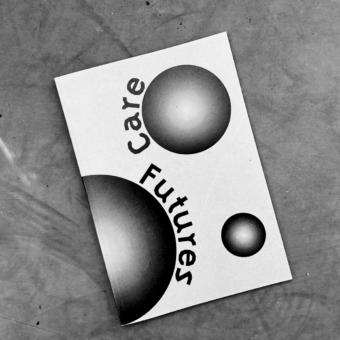
Co-imagining Care Futures (Prototeam 1)
A poetic investigation in future design practices with generative AI. While offering greater efficiencies and new creative modalities, the use of generative AI in design will require increased reflexivity to build inclusive futures.

Tomatoes as embodied data (ESR 9)
Sustainable Socio-Economic ModelsHow have various data, values, humans, nonhumans, relationships, phenomena, and trends shaped the phenotypes (bodies, behaviours, rhythms) of tomatoes? And how might they continue to shape and be shaped by tomatoes in the future?
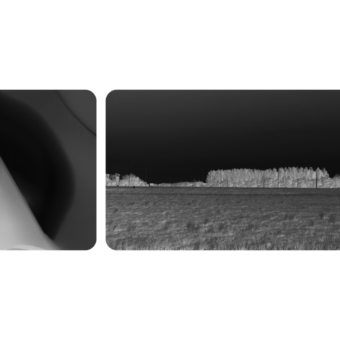
Acts of interfacing (ESR 4)
Trusted InteractionsA cinematic voyage that invites the viewer to observe, contemplate, and reframe the meanings and effects of interfacing.

Look, a ToSsphere! (ESR 12)
Democratic Data GovernanceA designerly inquiry into Terms of Service (ToS) ecosystems that starts with renaming them as ToSspheres and continues with various modes of mapping and shifting perspectives on what we encounter as we ignore ToS policies.

Undoing Gracia (ESR 5)
Trusted InteractionsThe experiment explores the fluidity of human-AI relations through a subjective digital twin, revealing new orientations and possibilities for queering as a method to shape new directions in HCI research.

Hall of Mirrors (Prototeam 3)
An open archive of (mis)interpretation of marginalized identities, cultures, stories, and places by generative AI for curious technologists, designers and artists, radical policymakers, and activists.
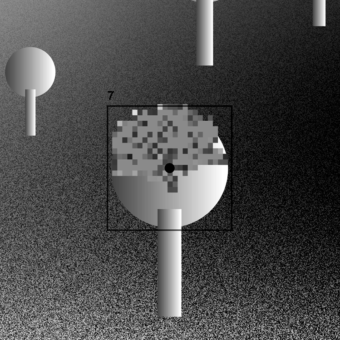
Eco-Urban Futures (DCODE Labs)
Trusted Interactions- Seowoo Nam
In response to the climate crisis, humans are recasting urban forests as infrastructures with digital technologies. How can digital twin simulation help us imagine healthier futures for us-with-the-forest?
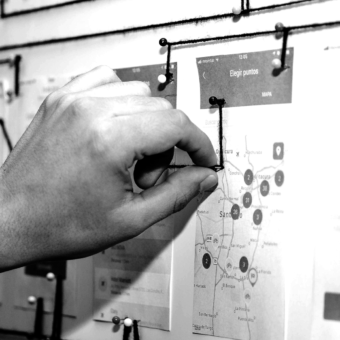
Ghosts in the making (ESR 15)
Future Design PracticesDesign and HCI have increasingly contended with issues of decoloniality in recent years. Interviews with design and tech professionals show that while there is a theoretical recognition of colonial issues, practical strategies to address them within institutional and collaborative constraints are challenging to outline.
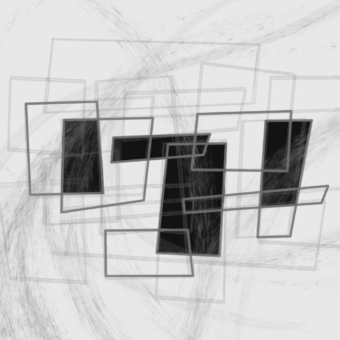
Reimagining AI Governance (ESR 11)
Democratic Data GovernanceThe increasing use of AI in the public sector necessitates robust and inclusive governance practices that account for the well-being of diverse communities and publics.

The shiny magic box (ESR 14)
Future Design PracticesAI algorithms have morphed from black boxes to shiny magic boxes. But what about the shifting and fluid relations we stash into these boxes?

Physicalising the pluriverse (ESR 10)
Sustainable Socio-Economic ModelsA fieldwork exploration and collaboration with Masewal members, Mexico. How can the physicalisation of ancestral values, indigenous knowledge, and cooperation help translate and conceptualise cooperative and care-driven indigenous practices for the digital world?

Agonistic Design (ESR 6)
Trusted InteractionsCan examining existing designs and methodologies for agonistic values help create a framework for a participatory way of engaging with technology in a more inclusive and democratic way?
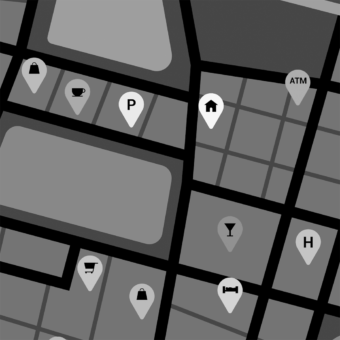
The InclusiveNet toolbox (ESR 3)
Inclusive Digital FuturesHow can inclusive design meet transport engineering and deliver personalized routing algorithms that go beyond efficiency?

The Social Life of Algorithms (ESR 1)
Inclusive Digital FuturesEthnographic methods are central for researching how people perceive algorithms, yet continually bind the study to the “interaction” as the research site. In the Bitcoin Beach of the Salvadorian town El Zonte, we started to prototype methods to move ethnographies outside the interaction and into the everyday practices where notions of algorithms emerge.

Shared Mobility Futures (DCODE Labs)
Inclusive Digital Futures- Shruthi Venkat
This project aimed to build shared understandings of future AI systems through design, addressing gaps in stakeholder backgrounds, and undertaking holistic approaches. Speculative design and the stack from Freedom Lab facilitated discussions and reflections on residential shared mobility.

Disentangling Fairness Perceptions in Algorithmic Decision-Making (ESR 2)
Inclusive Digital FuturesAlgorithmic systems have been claimed to be the future of decision-making processes while also accused to be deeply problematic. But how fair do those who are subject to algorithmic decisions perceive these systems to be?
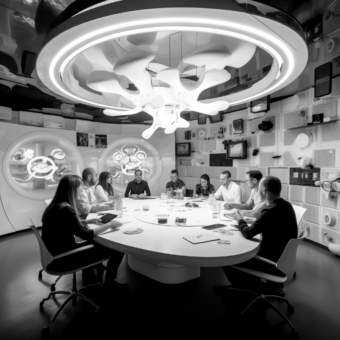
Conjectural Technologies (Prototeam 2)
A speculative design consultancy specialized in pre-participatory design. We design products and scenarios that serve as vehicles to break down barriers between disciplines in care technology environments.

Synthetic Data Generation (Prototeam 4)
- Francesco Maria Turno
- Maria Turno
- Sigita Lapiṇa
- Maskim Ilyin
- Luca Gilli
What is the place of Synthetic Data Generation within the realm of personalised travel recommendation algorithms?

